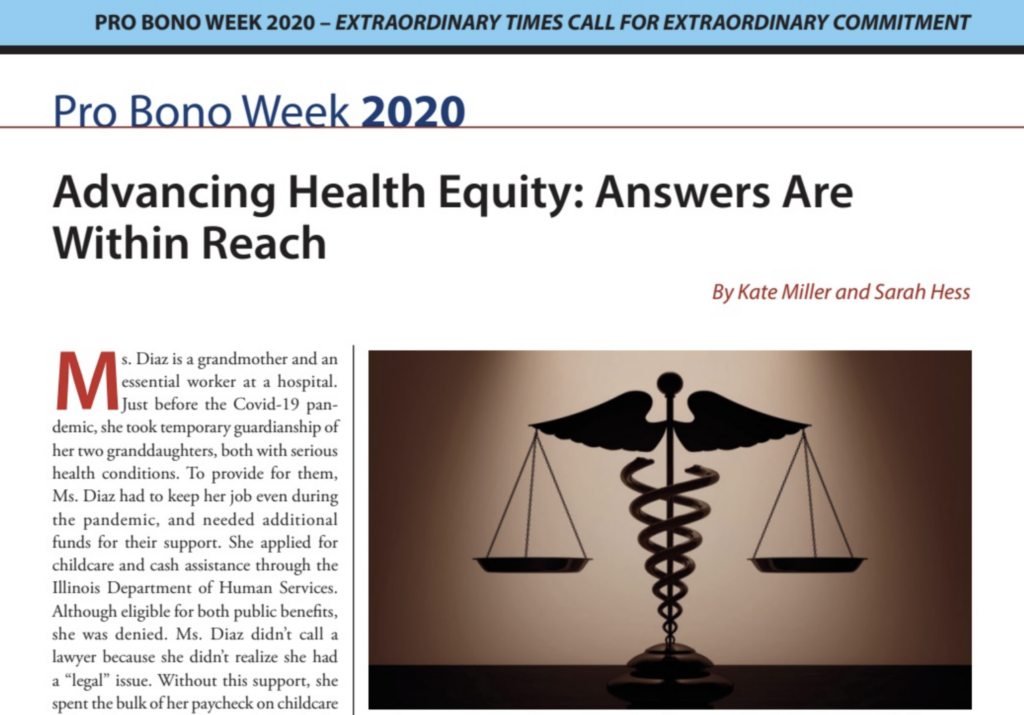The Role of Legal Aid in Advancing Health Equity
When Ms. Diaz, an essential worker at a hospital and caretaker of two granddaughters with serious health conditions, was wrongfully denied childcare and cash assistance during COVID-19, she struggled to manage her family’s health. Thanks to legal aid provided through a medical-legal partnership (MLP), Ms. Diaz was connected to the support her family needed.
Stories like Ms. Diaz’s are not rare in Chicagoland. In the newest CBA Record, Legal Council’s Kate Miller and Sarah Hess explore the role of legal aid in advancing health equity. When people in poverty aren’t connecting to traditional legal aid resources, bringing legal teams to the clinics and hospitals where people receive health care can help:
MLPs are innovative, evidence-based models of civil legal aid that partner health systems and legal services organizations to enhance patient and community well-being. They are part of a growing movement to use the power of the law to make people and places healthier.
As Kate and Sarah explain in their article, Black, Latinx, and Indigenous people like Ms. Diaz are more likely to work in front-line essential jobs, often for low wages, and also face higher COVID-19 death rates. A long history of racial disparities—including in health, wealth, employment, and more—have created space for health inequities and have led to the disproportionate impact of this pandemic on communities of color.
“Addressing racism and social determinants of health is central to the fight for health equity. We know that more than 60% of health is determined by social—not clinical—factors. […] Access to income, healthcare, safe housing, quality education and employment, decision-making authority, and immigration status, all have a deep impact on health and well-being. Racism has limited this access in pervasive and persistent ways.”
Read more about health equity, racial inequality, and the power of medical-legal partnerships in the Sept/Oct 2020 CBA Record.



